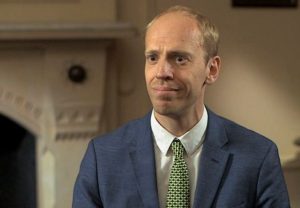Poor nations bearing the cost of refugee crisis
 African nations are effectively being forced to borrow money to support refugees, according to a leading expert on forced migration and international affairs.
African nations are effectively being forced to borrow money to support refugees, according to a leading expert on forced migration and international affairs.
Professor Alexander Betts, of Oxford University’s Refugee Studies Centre, in an article in the journal Foreign Policy, says poor countries are unfairly bearing the brunt of the refugee crisis.
The article was sparked by Tanzania’s withdrawal from the so-called Comprehensive Refugee Response Framework (CRRF), a centrepiece of the UN’s plans to reform the refugee system
Tanzania currently hosts over 350,000 refugees and has hosted refugees continuously since 1959.
But Tanzanian President John Magufuli has withdrawn from the framework because it meant his country would have to borrow money from the World Bank in order to support greater opportunities for refugees.
Professor Betts says Tanzania’s move is a warning to the West.
“Tanzania’s announcement is a reminder that if the refugee system is to be sustainable, distant donor states must listen more attentively to the concerns of host countries,” Prof Betts says.
“The World Bank’s role in responding to refugee crises should be welcomed… asking Tanzania to borrow in order to assist refugees is a mistake,” he says.
Professor Betts suggests that debt forgiveness would be a better way to support host states.
“The European refugee crisis has deluded many voters into believing that most refugees are coming to rich countries,” Prof Betts wrote.
“They are not — 84 percent are in low- or middle-income nations. Tanzania is one such country; it hosts over 350,000 refugees mostly from Burundi and the Democratic Republic of the Congo and has had a long-standing commitment to offering sanctuary to persecuted people, despite being among the poorest 30 countries in the world,” he wrote.
“In contrast to other countries in the region such as Kenya, Tanzania’s reputation for hosting has been generally positive; it pioneered rural self-reliance programs for refugees under its founding president, Julius Nyerere, and offered naturalization to tens of thousands of Burundians under President Jakaya Kikwete from 2005 to 2015.
“Recently, though, it announced its withdrawal from the so-called Comprehensive Refugee Response Framework (CRRF), a centerpiece of the United Nations’ current reform plans for the refugee system. The CRRF is the operational pillar of a new UN Global Compact on Refugees, and one of its main aims is to better support refugee hosting countries like Tanzania, including through greater development assistance.
“After months of discussions, Tanzanian President John Magufuli rejected a bill on the compact. The apparent sticking point was that the country would have to borrow money from the World Bank in order to support greater opportunities for refugees.
“As part of the bank’s annual lending window for poor countries, known as IDA18, Tanzania was offered $100 million, split between a loan and a grant.
“The idea that a country like Tanzania should have to borrow, even at preferential rates, to host refugees on behalf of the international community was roundly derided by Magufuli.
“The government has been clear that it supports refugees but rejected the plan on principle because it wants rich countries to pay Tanzania rather than forcing it to borrow,” Prof Betts wrote.
He said Tanzania’s move could have ramifications for the global refugee system.
“Western leaders are especially focused on finding solutions for refugees in havens like Tanzania that are close to conflict zones. And yet, if donors are not even prepared to adequately fund them, there is a real risk that other host countries may follow suit,” Prof Betts wrote.
“Today, less than 40 percent of the humanitarian budget for refugees in Tanzania is being met. Local concerns from district and regional commissioners in the border regions feature prominently on the radar of the government,” he wrote.
“In regions such as Kigoma, they have consistently expressed anxiety about the destabilizing effects of small arms and environmental degradation. In this context, and against the backdrop of history, it is understandable that the request to borrow money to implement a plan agreed far away in New York and largely delivered as a fait accompli feels like another bad deal.
“Most of the other 12 countries involved in the CRRF rollout seem likely to stick with the process, but there are still broader lessons for refugee politics. Tanzania’s central message to international lenders is: ‘Don’t be so arrogant as to believe you don’t have to build partnerships among equals’.
“Inevitably, a fundamental feature of the refugee system is its glaring power asymmetry. Rich donors fund at their discretion, and poor countries in unstable regions face an international legal obligation to admit refugees.
“Unlike a growing number of rich countries, poor countries rarely shirk that responsibility or try to weasel out of it.
“Their willingness to offer sanctuary on their territory risks being taken for granted. Tanzania’s announcement is a reminder that if the refugee system is to be sustainable, distant donor states must listen more attentively to the concerns of host countries,” Prof Betts wrote.
“Debt forgiveness would be a better way to support host states, especially given that structural adjustment programs and the accumulation of debt underlay Tanzania’s shift toward more restrictive refugee policies in the 1990s,” he wrote.
Laurie Nowell
AMES Australia Senior Journalist












